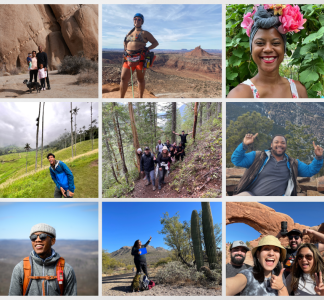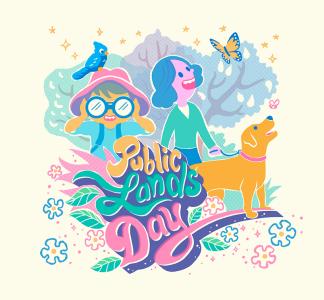How to get outdoors on a budget
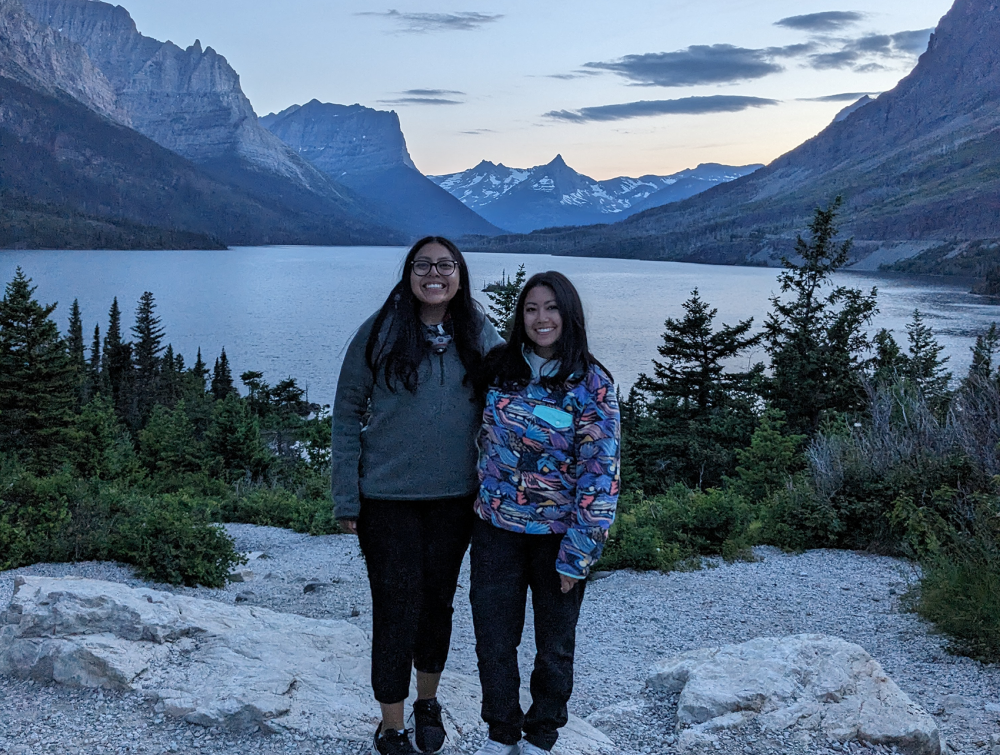
Mayra and Alex, authors of this blog, at Glacier National Park in Montana.
Free park passes, gear rental among top tips
AUTHORS: Alex Biswas, Mayra Mendez
Everyone should be able to get out and enjoy public lands. Unfortunately, cost is one of the biggest challenges people face when it comes to getting outside. Park entrance fees, transportation, gear and other related expenses can add up quickly.
While many advocates, organizations and agencies continue to work to improve access, we’ve compiled a few low-cost ways that can help get you started.
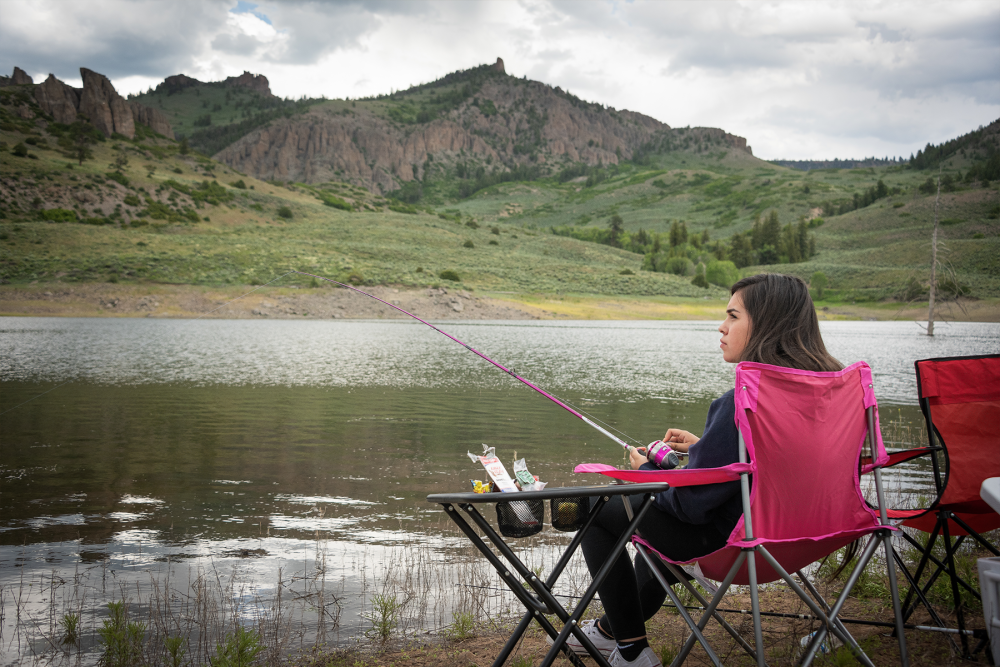
Fishing in Curecanti National Recreation Area, CO.
Mason Cummings
1. Skip (or at least reduce) the entrance fees!
Some parks and outdoor spaces require an entrance or participation fee. But knowing about things like fee-free days (Public Lands Day, for example) can make things a lot easier.
-
The ”America The Beautiful National Park and Federal Lands Pass” can be a great way to gain access to national parks, national wildlife refuges and other federal lands for less than it would cost to pay individual entrance fees throughout a year. The following agencies honor the America The Beautiful Annual Pass at sites where Entrance or Standard Amenity Fee(s) (sometimes called “day use fees”) are charged:
-
You might qualify for a free pass—for example, if you’re a veteran, active-service member of the military or have a medically determined disability. Find out if you qualify for a free pass!
-
Make sure you explore the fee-free days your state might offer, too! Searching for something like “fee-free days outside [insert your state]” is a good place to start.
-
You might be able to get a break on fees associated with certain specific activities. For example, some states, like Washington, offer “free fishing weekend,” when fishing licenses are not required to fish for certain species. Opportunities vary by location, so explore your local state and community resources for more information on fee-free days near you.
-
Some states offer complimentary land or water access passes when you purchase a fishing or hunting license.
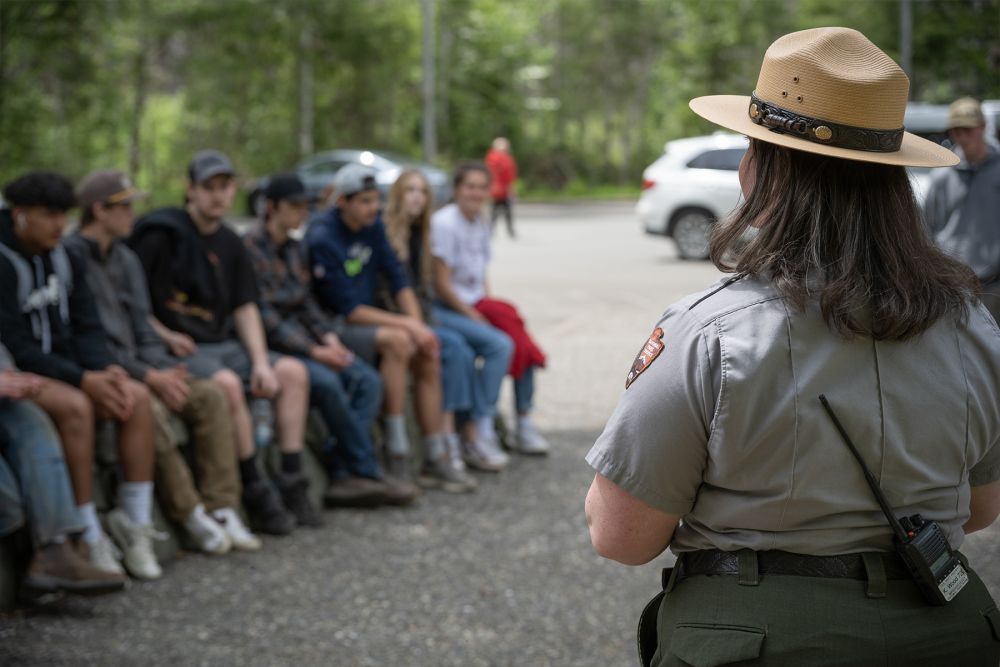
Park ranger at North Cascades National Park, WA, speaking to a crowd of young people.
Mason Cummings
2. Rent, borrow or swap gear
You don’t always need to buy new gear to get outdoors. Renting or buying used outdoor gear can be a great way to save some money, especially if you’re trying a new activity. Some other tips:
-
Many libraries let you rent passes to visit parks, wildlife areas or other state-managed land for free. Here are a few states that offer state park passes and other outdoor resources for rent: CA, CO, MN, WI, VA.
-
Did you know that libraries offer more than just books? In addition to park passes (see above), some libraries rent out binoculars, fishing rods and hiking backpacks! Contact your local library to discover what your library card could do for you!
-
Contacting your local outdoor stores and seeing if they offer rentals. A few rental gear shops that might have locations near you: REI Rentals, Public Lands Rentals, Outdoors Geek, Rent Outdoor Gear, Gearo, Xscape Pod, Lower Gear Outdoors.
-
Explore used gear stores and thrift shops.
-
Researching gear swap events – colleges, universities, and local outdoor groups are great places to start.
-
Connect with local outdoor groups to see if there are opportunities to borrow gear from your neighbors.
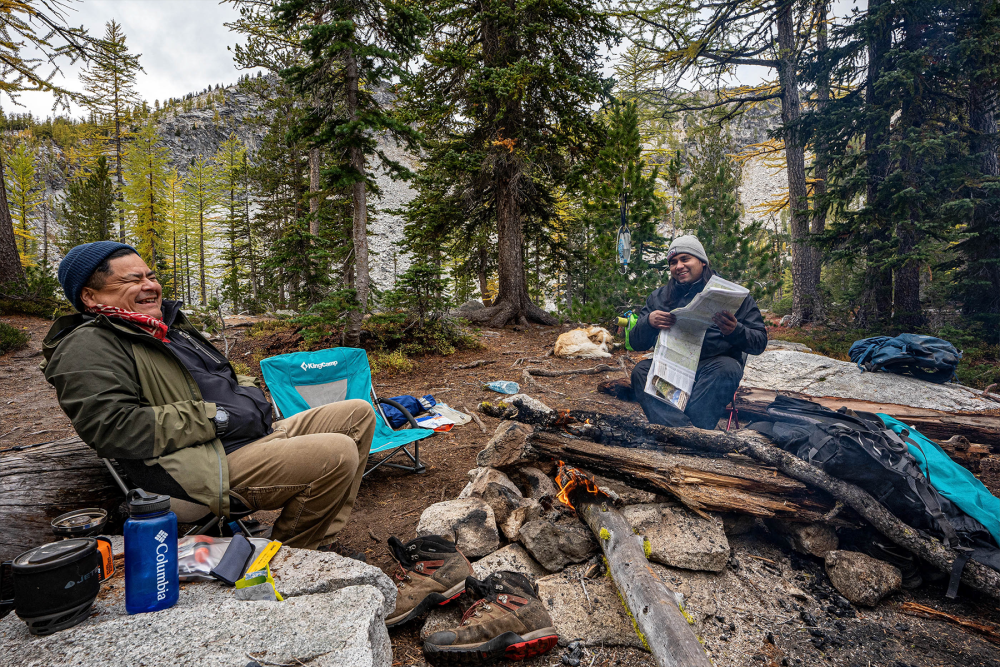
Camping in Lake ChelanSawtooth Wilderness, ID.
Joe Whittle
3. Take advantage of public transportation
Whether you’re going to your local neighborhood park or national park, the price of transportation can add up. Fortunately, there are a few great ways to defray those costs:
-
Check out your local public transportation website to see if they offer transportation to public lands, like Trailhead Direct in Seattle.
-
In some communities, there are rider discounts for students or people 18 years old and under. In fact, many cities across the country have adopted zero-fare public transit for all ages, including Albuquerque, New Mexico (where ART & Sunvan are permanently free); Avon, Colorado; Olympia, Washington; Tucson, Arizona and Alexandria, Virginia!
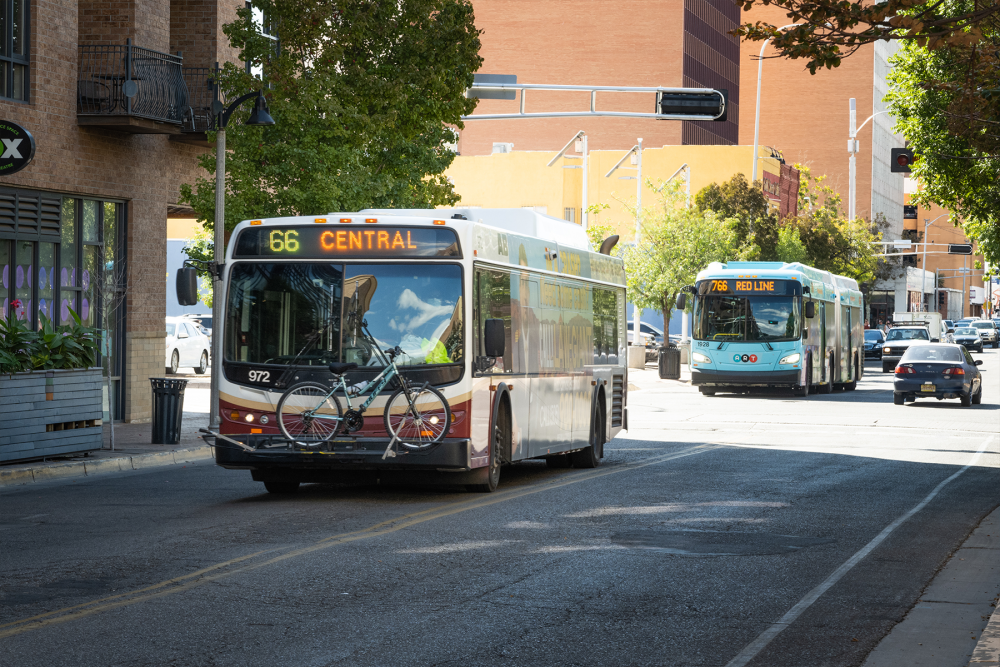
Buses in Albuquerque, NM.
Mason Cummings
4. Find your people
One key way to save money while you do outdoor recreation—not to mention having more fun in the process—is to tap into your community. Here’s what we mean:
-
Look up community events that your local organizations are hosting. Some examples of organizations for you to research:
-
[Your state] Department of Fish and Wildlife
-
[Your city] Parks and Recreation
-
Outdoor Asian
-
Patagonia stores
-
Outdoor Afro
-
Latino Outdoors
-
REI stores
-
-
Are you a student? Many universities and colleges have clubs or classes that you can join that offer amazing recreational opportunities for all experiences levels.
-
If you love hiking, try the AllTrails app! Their detailed trail information—including reviews and photos from other users--can give you an idea of what to expect when you go hiking, so you know exactly what you need to bring!
The costs of getting outdoors can add up quickly, but we hope you find these recommendations helpful for saving money and trying new activities. The most important thing is that you’re getting outdoors and having fun – however that looks to you!

Happily running at Snow Canyon State Park, UT.
Michelle Craig
